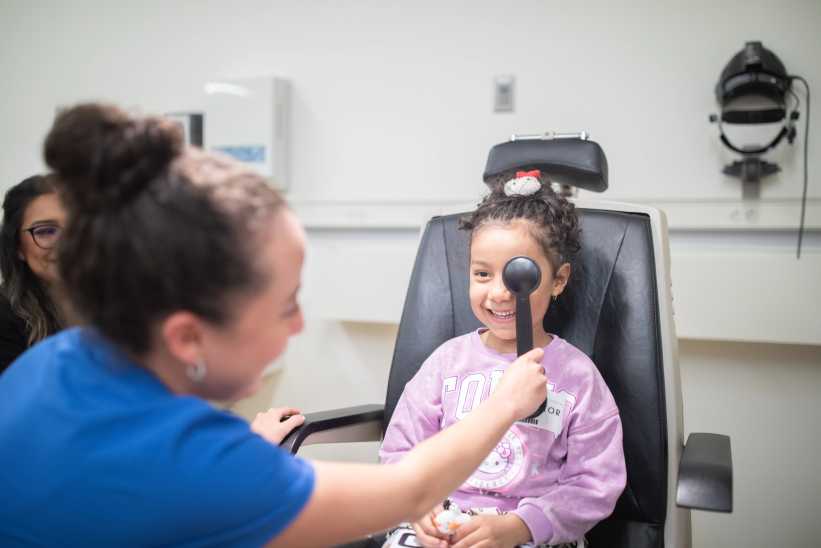In many homes, getting kids to turn off their cell phones, shut down the video games, or quit YouTube can incite a revolt. And if your kids say they need to be online for schoolwork, you may not know when the research stops and idle activity begins.
When it comes to screen time, every family will have different amounts of time that they think is “enough.” What’s important is giving it some thought, creating age-appropriate limits (with built-in flexibility for special circumstances), making media choices you’re comfortable with, and modeling responsible screen limits for your kids. Try these age-based guidelines to create screen rules that stick.
Preschoolers
There are lots of great TV shows, apps, games, and websites geared for this age. But too much time spent in front of a screen can interfere with activities that are essential for growing brains and bodies.
- Go for quality and age-appropriateness. Not everything for preschoolers needs to be a so-called “brain-builder,” but there’s a difference between mindless and mindful entertainment. Common Sense Media’s reviews can steer you toward titles that help preschoolers work on developmental skills like sharing, cooperation, and emotional intelligence.
- Sit with them, and enjoy the discovery process. There will always be moments when you need to rely on the TV or an app to distract your preschooler while you get something done. But as much as you can, enjoy media together. Little hands and developing brains really benefit from your company (and guidance!).
- Begin setting limits when kids are little. Habits get ingrained early, so try to establish clear screen-time rules when your kids are young. For games, apps, and websites, you may need to set a timer. For TV, just say “one show.”
[gravityform id=”13″ title=”false” description=”false” ajax=”true”]
Elementary and Middle Schoolers
At this age, kids love TV shows, games, movies, and online videos. They begin to explore more and hear about new shows and games from friends. Because they can access these things by themselves, it’s crucial to continue to supervise their activities and help them stick to your rules.
- Start with an endpoint. Use whatever tools you have — your DVR, Netflix, OnDemand — to pre-record shows, cue them up, or plan ahead to watch at a specific time. That way, one show won’t flow into the other, and you can avoid commercials. If your kids are into YouTube, search for age-appropriate videos, and add them to a playlist to watch later. Because most games don’t have built-in endings (and are, in fact, designed to make kids play as long as possible), set a timer or some other cue that says “time to stop.”
- Help them balance their day. Kids this age need guidance from you on a daily plan that includes a little bit of time for everything. And staying involved works: Kids whose parents make an effort to limit media use spend less time with media than their peers do, according to a 2010 Kaiser Family Foundation study. Use the American Academy of Pediatrics’ worksheets to create a family media plan.
- Practice what you preach. It’s tempting to keep reaching for your phone to check email, texts, Facebook, or the news. But your kids will be the first to call you out for not “walking the talk.” Plus, they’ll pick up habits from you. Model the media behavior that you want your kids to emulate.
High Schoolers
You’ll have more success with teens if you explain the reasons why too much screen time is harmful. For example, social media may contribute to anxiety.
- Help them make quality choices. You still have a say in what they see, hear, and play. Put in your two cents about the importance of quality shows, games, and movies.
- Crack down on multitasking. High school kids who’ve discovered texting, IM, Facebook, and music tend to do them all at once — especially when they’re supposed to be doing mundane tasks like homework. But a University of Michigan study found that humans are terrible multitaskers and that the practice actually reduces the ability to concentrate and focus.
- Find ways to say “yes.” Look for movies they can watch. Find games you’re OK with. If your teens ask to see something you don’t approve of, help them find alternatives.
 Common Sense Media is an independent nonprofit organization offering unbiased ratings and trusted advice to help families make smart media and technology choices. Check out its ratings and recommendations at commonsense.org and sign up for its newsletter to read more articles like this.
Common Sense Media is an independent nonprofit organization offering unbiased ratings and trusted advice to help families make smart media and technology choices. Check out its ratings and recommendations at commonsense.org and sign up for its newsletter to read more articles like this.
























